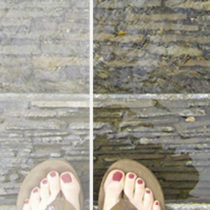Landscape Architecture for Landscape Architects › Forums › RESEARCH › Urban Agriculture Graduate Research
- This topic has 1 reply, 8 voices, and was last updated 14 years, 4 months ago by
 William Tietje.
William Tietje.
-
AuthorPosts
-
July 13, 2011 at 12:00 pm #161595
Tipton Fowlkes
ParticipantI am a third year MLA student at NCSU and I am developing a research project for the fall semester based on design’s role in the development of urban agriculture. There are several ways I’m considering approaching the topic, including: What business models can support a practice based specifically on the consultation of urban ag design — How can designers fold farming into community spaces in order to create a more sustainable (in terms of motivated users) model — How can LAs team up with product designers to create products which allow individuals to farm in small spaces?
Can any professionals who are working in this area give some advice as to what questions need answering? Perhaps I haven’t landed on the right one yet. My aim is to be the person in my firm who is most knowledgeable about how we apply our skills to this topic. Who is pushing the boundaries in this sector?
July 13, 2011 at 3:10 pm #161606 William TietjeParticipant
William TietjeParticipantTipton,
Hi my name is Will Tietje. I recently graduated from LSU spending my last year doing a capstone project on a very very similar project, I called it “Viable agricultural solutions” but it’s pretty much the same thing your looking at. I would definitely be interested in talking more with you about the subject, first question being where do you wanna begin!July 13, 2011 at 3:31 pm #161605 Jon QuackenbushParticipant
Jon QuackenbushParticipantI believe this is called community gardening.
Contact Capital District Community Gardens in Troy, Ny. They are the oldest organization of its kind in the United States. they manage over 70 garden sites throughout the Capital District with hundreds of gardeners. My wife is a garden organizer there.
Not really the purview of a Landscape Architect per se, it is more of a non-profit grass roots type movement.
July 14, 2011 at 5:58 pm #161604 Rick KingsburyParticipant
Rick KingsburyParticipantUrban farming is a rapidly growing area, the WSJ just had a very interesting article on the phenomenom in NYC, where entire rooftops have been converted to urban farms, selling produce to local restaurants, organic and whole foods stores, etc.
Seems the verdict is still out on whether this is commercially viable or not. Design per se seems to be more about doing a lot with little soil and the conservation of water, as well as efficient layout.
You might find the article interesting.
July 14, 2011 at 7:17 pm #161603 Jason T. RadiceParticipant
Jason T. RadiceParticipantI wouldn’t eat any of that stuff, especially grown in NYC. You have no idea what kind of stuff in in the soils, and as far as roof top, what the plants are pulling in from the air. You use plants for soil remediation, so, they are sucking in all them pollutants, and it has to go somewhere…into the leaves and fruits you eat.
July 14, 2011 at 8:13 pm #161602 Jon QuackenbushParticipant
Jon QuackenbushParticipantIt think it would be fine if you re-mediated the soils or built raised beds and brought in fresh soil and gave anything your about to eat a good washing before consuming.
It would be interesting to grow stuff and have it analyzed in the lab for heavy metals and the like.
July 14, 2011 at 8:25 pm #161601 Jason T. RadiceParticipant
Jason T. RadiceParticipantI love heavy metal.
July 14, 2011 at 9:38 pm #161600 Jason T. RadiceParticipant
Jason T. RadiceParticipantI’d be far less worried about rooftop planting than infill gardens in vacant lots in former industrial rust-belt cities. It would be interesting to see if there have been studies on this. And I prefer progressive metal/rock (essentially classical music with electric guitars) and other types of music as well. As long as it ain’t pop or rap.
July 22, 2011 at 8:27 pm #161599mark foster
ParticipantTipton,
Check out Andres Duany’s lecture on “Agricultural Urbanism”
July 22, 2011 at 8:54 pm #161598 Jon QuackenbushParticipant
Jon QuackenbushParticipantI am with you with the music, and I will add modern country music to that list (as Tom Petty said, modern country is just bad rock and roll with fiddles).
I have been digging old front porch blues lately, it is a lot of fun to play on my electric…
October 31, 2011 at 9:59 pm #161597 Rachel Wynn HillParticipant
Rachel Wynn HillParticipantCheck out foodurbanism.com (done by VWA in Switzerland) which is a good Atlas of info. I think Zurich Urban Farmers in Zurich is on the right path of figuring out how to make it profitable. In Canada, HBLanarc wrote a book about their work which is more about planning and design.
All good stuff! Good luck.
Rachel
November 1, 2011 at 2:02 am #161596 Tosh KParticipant
Tosh KParticipantI assume farming as opposed to gardening; you should probably define that and be able to articulate why farming as opposed to, say urban forestry or gardening. Though for arguments sake, “small farming” is more like gardening than an agricultural endeavor; there’s enough terrain vague in cities to lean toward farming.
For more conceptual stuff there’s a book by bracket “On Farming,” Village Homes (http://www.villagehomesdavis.org/) – Robert Thayer’s written on it, any land trust in any city. As to the question why a designer (who, presumably is less versed in agriculture), that might be the crux of it all – almost every city has community gardens, farmer’s markets, and increasingly larger numbers of larger plots of crops (recent article about Cleveland hints at one of the largest obstacles: zoning code – after all, the rather unregulated composting and maintenance of crops and livestock did contributed to rather unsanitary urban conditions).
Theoretically and in more social aspects of the impact of urban cultivation, I would highly recommend Randy Hester’s “Design for Ecological Democracy” (I personally find it inspiring and far more relevant than the recent fad of landscape urbanism).
As for the risks, yes urban air always carries particulates that makes it difficult to grow consumable leafy plants (Mielke, et al have gone into great depth about urban lead #s, if we followed EU regulations, kids wouldn’t be allowed outside in most urban centers).
I would say: step 1 define urban agriculture, step 2 why this is relevant to you and the profession, step 3 understand the processes involved with urban farming, then leverage that into why our profession’s expertise could help this process.
-
AuthorPosts
- You must be logged in to reply to this topic.


